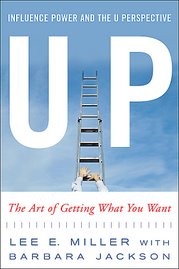Sunday, September 07, 2008
Here is a letter from one of our readers seeking advice on a common concern: How to avoid having age hurt your chances of getting the job you want.
I am in my 50s. I recently started a job hunt after moving because of family obligations. I have had several interviews, but after what I thought were good interviews, there was no further contact from the employer. I have contacted one employer several times to try to get a second interview but with no suc cess. Do you think it is my age? If so, what can I do for future interviews to downplay my age?
Without knowing more about your specific situation I cannot say whether or not age is affecting your job search. While it is illegal to consider age in determining whether or not to hire someone, age sometimes can be a factor in a job search.
Employers generally value experience, so age only is viewed negatively if you don't take steps to ensure that it is not seen that way. There are several things you can do to minimize the risk that age will hurt your chances of being hired.
Since you can't get hired unless you get an interview, start by making sure your résumé is "age neutral." Rewrite your résumé, so nothing indicates how old you are. For example, list your degrees, but do not include years of graduation. While you should list the dates of employment when you are describing your work history, only list your most recent job history going back approximately 10 to 15 years. If you have other important work experience, list it under a section titled "Other Relevant Experience," and do not include the dates relating to that experience.
Whether your age will actually play a role in the hiring decision, how you interview will be determinative. If you do a good job in the interview, age is unlikely to hurt your chances of being hired.
Appearance is important. If you look and act old, then that is how you will be perceived. Go out of your way during the interview to be energetic and positive. Make sure you are in good physical shape and be contemporary but appropriate in the way you dress.
Don't dress like you are 20 years old, but don't wear the same styles you wore 20 years ago. Join a gym, get a new hairstyle and buy some new clothes. Get the best clothes you can afford and make sure they are well tailored.
Most important, make sure you stay current with technology. That is the one aspect that concerns businesses when they are hiring older employees. Employers generally want to hire individuals who understand, and can adapt to, changing technology.
If you can demonstrate to a prospective employer that you are comfortable with technology, age will not likely be an issue. Take courses if you need to up date your familiarity with computers. Demonstrate that you are at home on the internet. Create a professional online presence. Understand terms like social networking. Have an online bio, write a blog and have your own web page or web résumé. Write professional articles and have them published online.
Here are some tips to help you eliminate age as a factor in your job interviews.
- Prepare: Find out everything you can about what the organization is currently doing, the challenges they face, the job and the interviewer.
- Make your experience a plus by focusing on what you have done that will be valuable to your prospective boss.
- Ask knowledgeable questions.
- Demonstrate that you are comfortable with technology.
- If you are asked about something that you don't know how to do, confidently express your willingness and ability to learn how to do it.
- Don't ever say anything negative about a prior employer, even if true.
- Smile.
- Pay careful attention to how you dress -- contemporary but appropriate to the industry.
- Always be positive and en thusiastic.
- Tell the interviewer that you want the job
Effective interviewing starts with having the right mindset. It requires an understanding that employers are seeking positive, enthusiastic employees who can adapt to changing conditions.
They want individuals who have relevant skills that can help them deal with the most pressing issues they are facing. They want employees who are comfortable with technology and are not afraid to learn and try new things. If you can demonstrate that you bring these attributes to the workplace, your age will be the last thing on the interviewer's mind.
A veteran human resources executive, Lee E. Miller is the author of "UP: Influence Power and the U Perspective -- The Art of Getting What You Want," and the co-founder of YourCareerDoctors.com, a Web site devoted to career success. Mail questions to Lee@YourCareerDoctor s.com.



